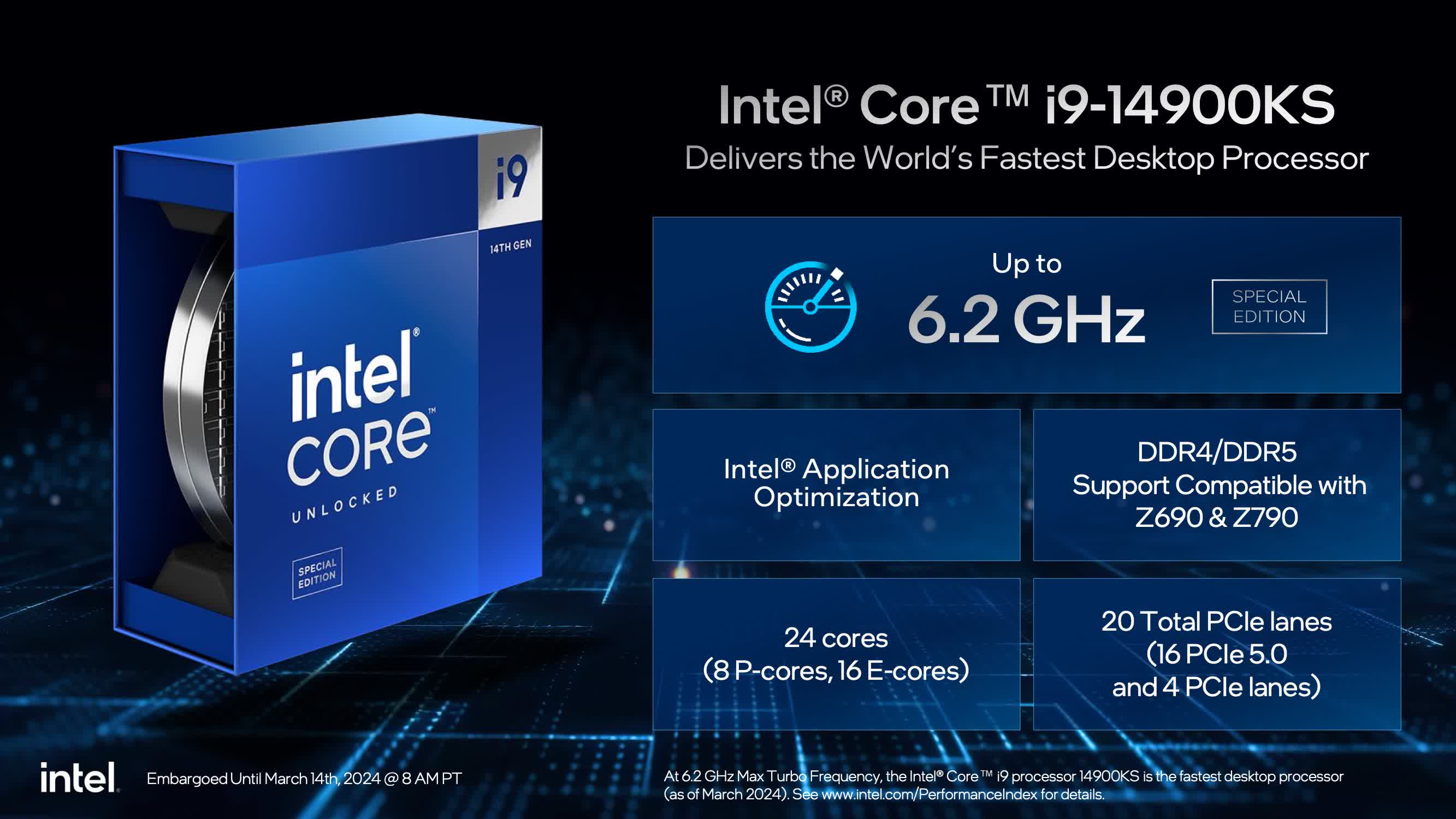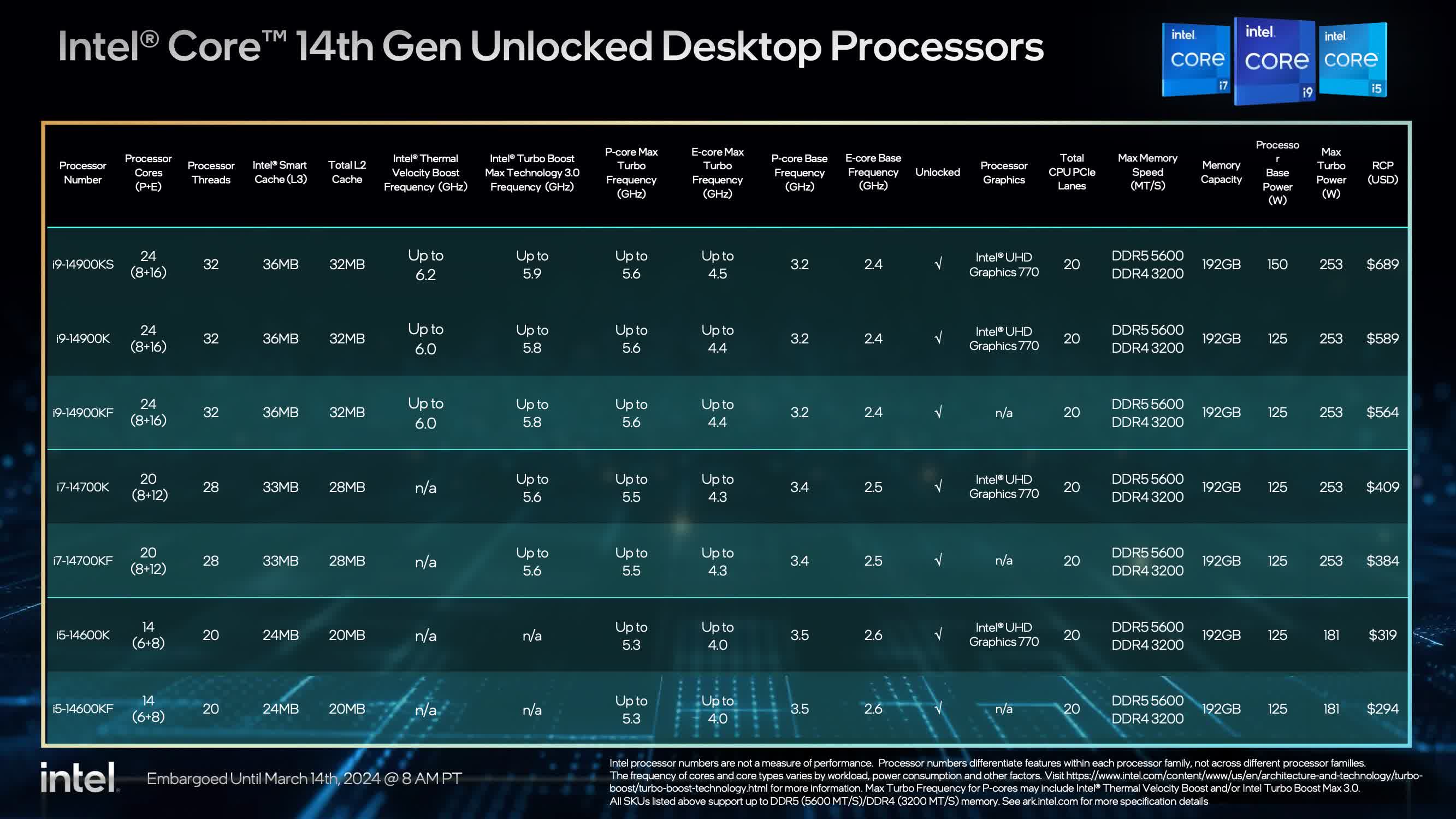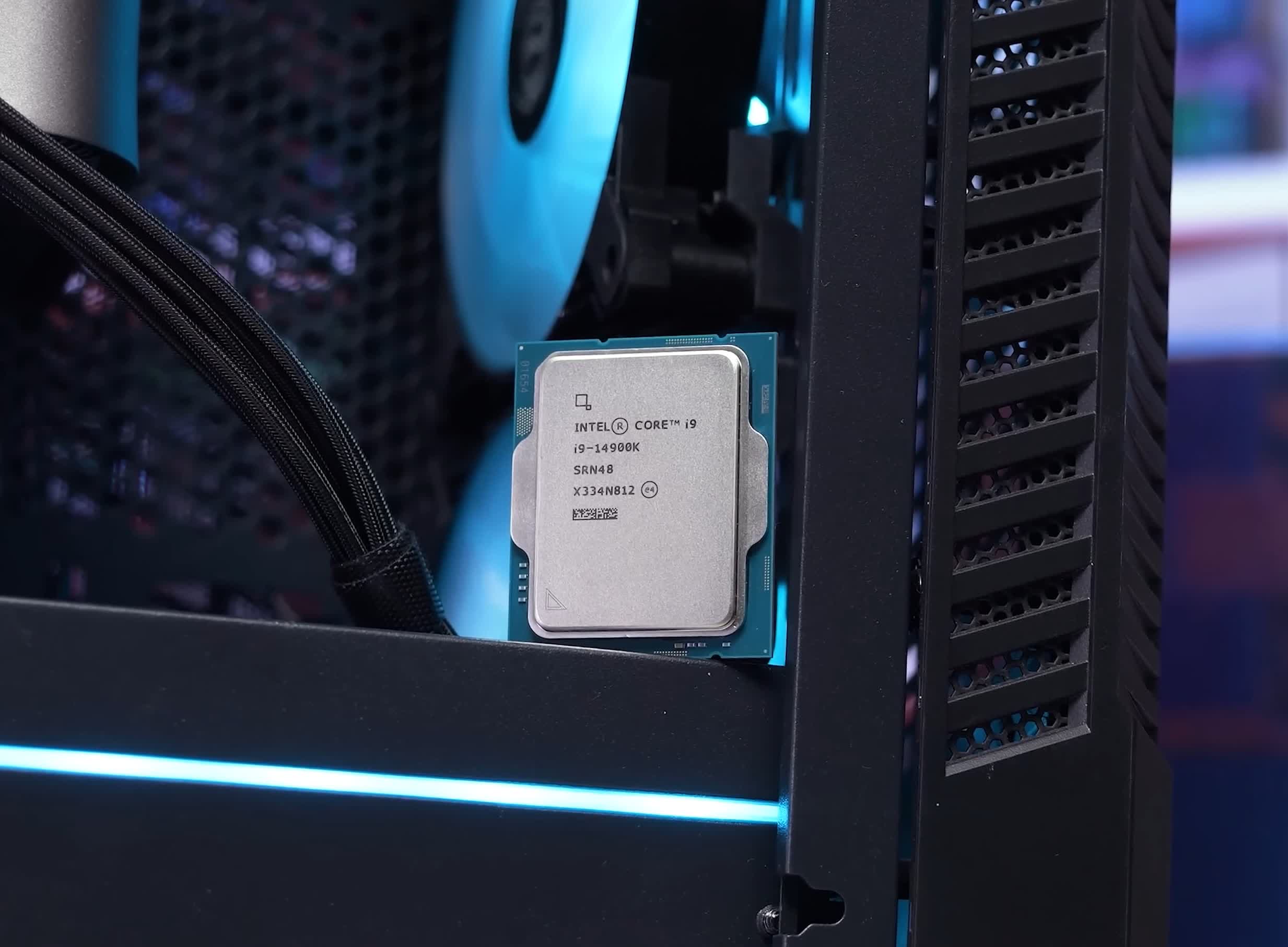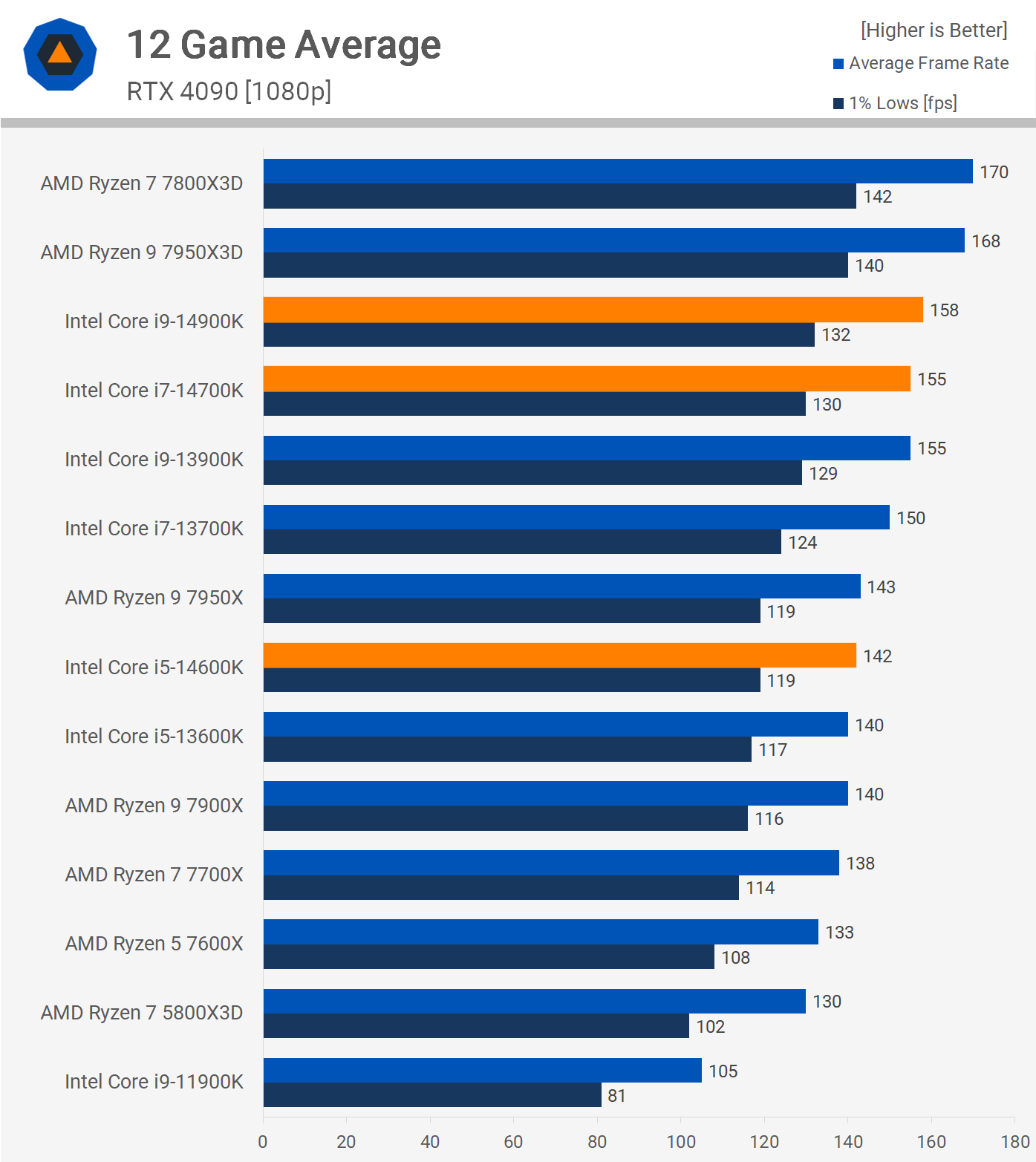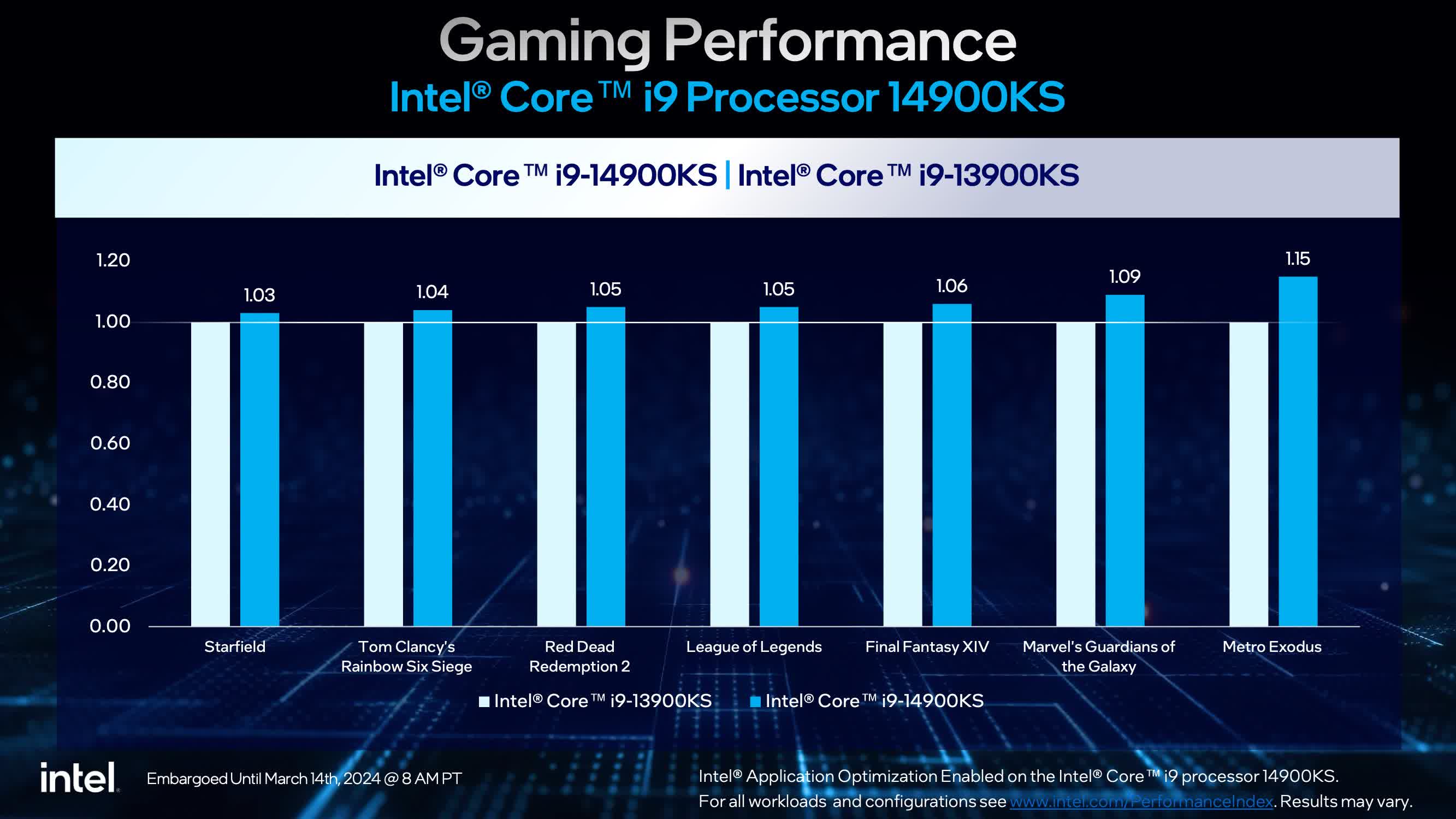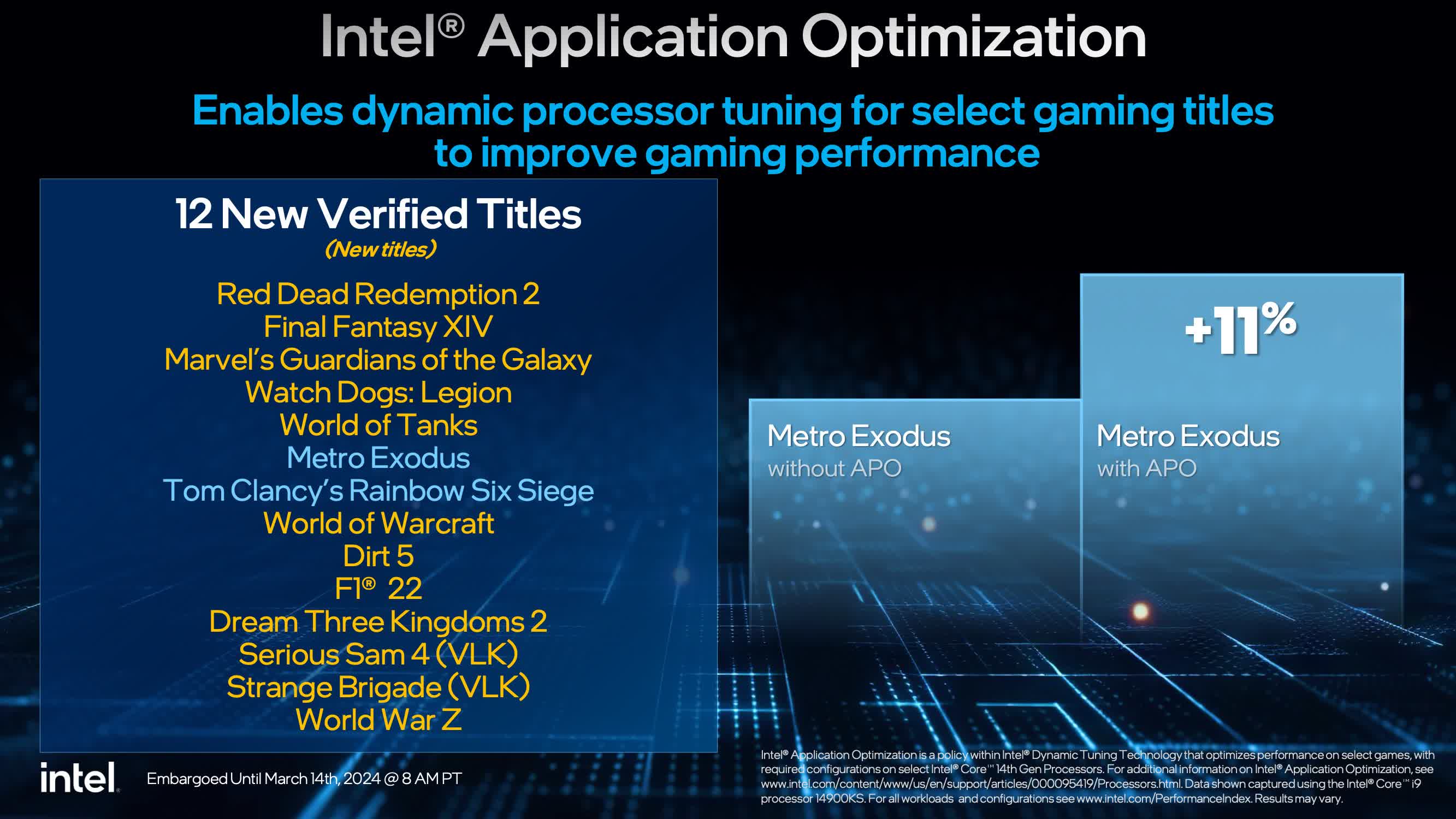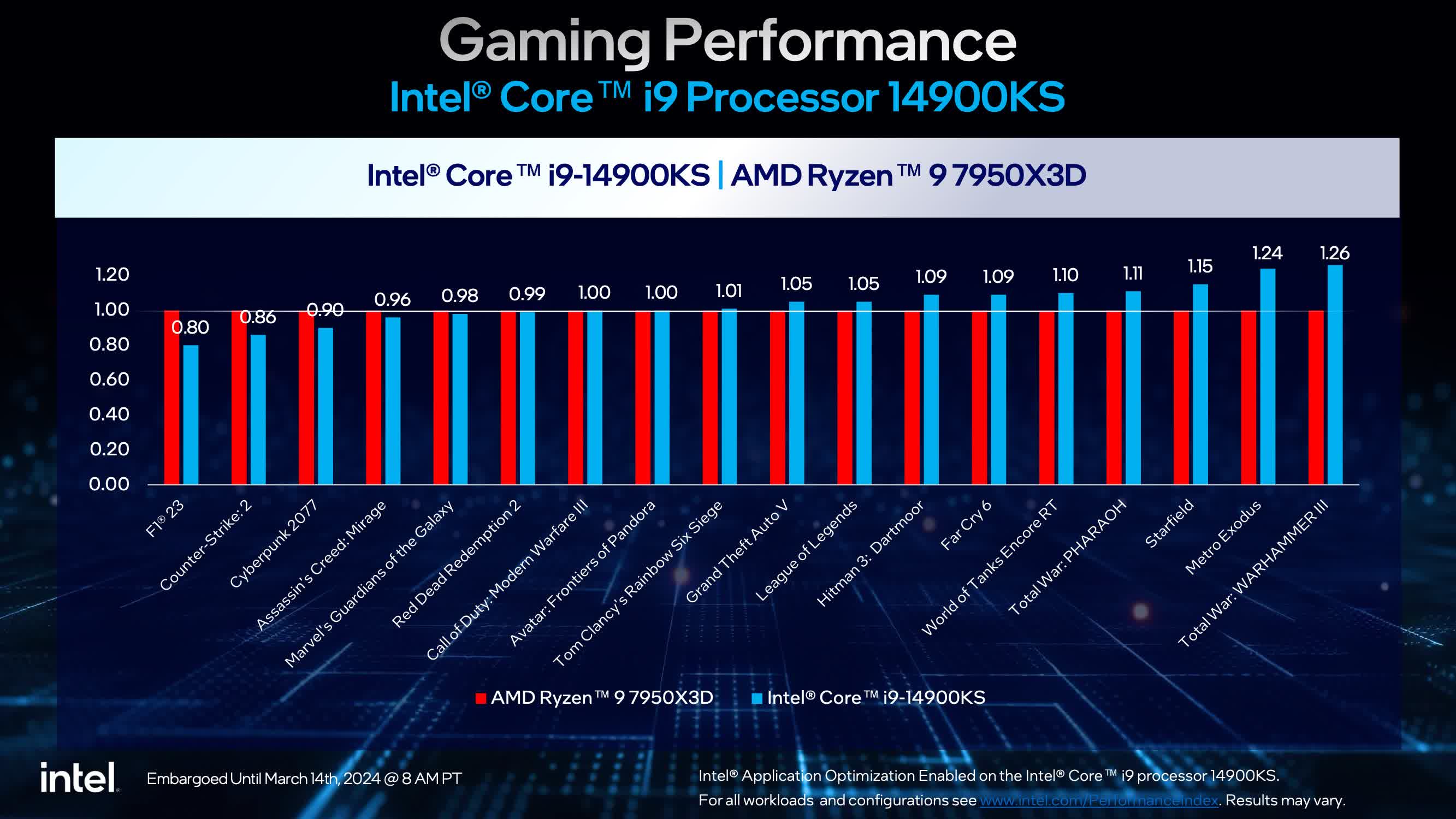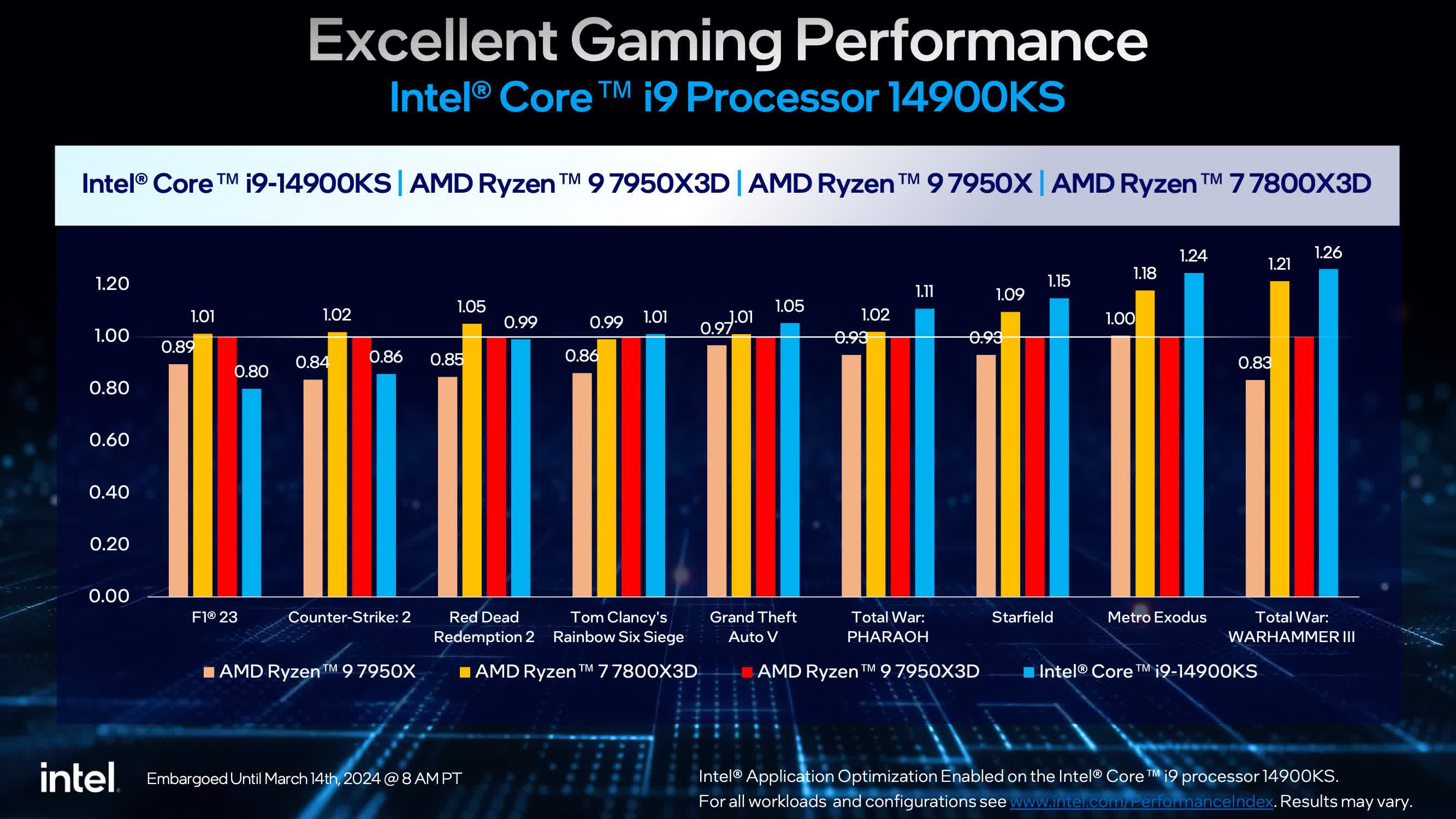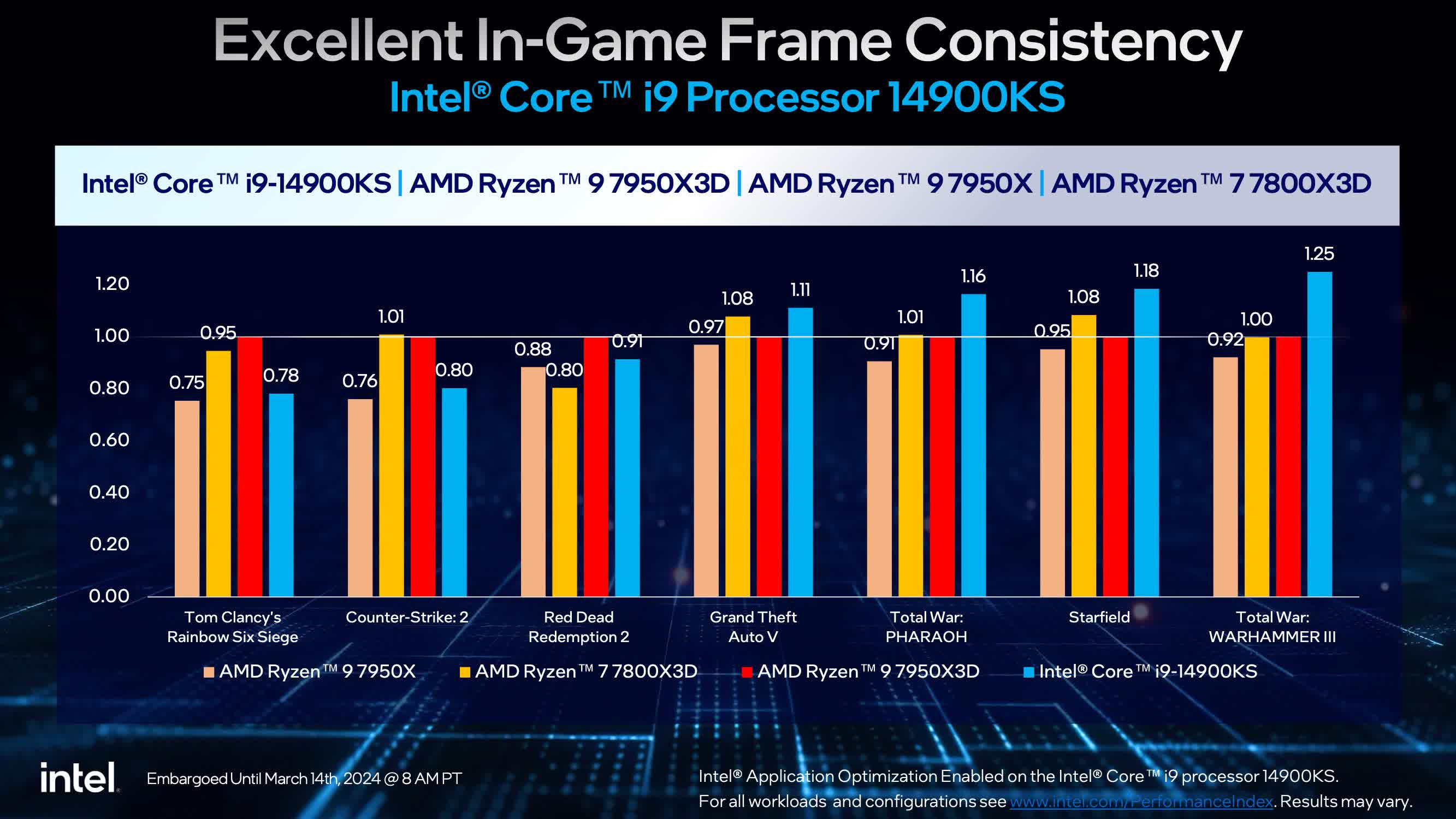Editor's take: The Core i9-14900KS is a very mild improvement over the 14900K. The 14900K itself is basically just a 13900KS, which is basically just a 13900K, so the new 14900KS is Intel's fourth flagship "fastest ever" processor to use basically the same silicon.
Looking at the spec sheet provided by Intel, 14900KS versus 14900K: the new KS model has a new maximum clock speed of 6.2 GHz, up from 6.0 GHz for the "Thermal Velocity Boost," which is the frequency on the fastest few P-cores under ideal thermal conditions. The standard Turbo Boost 3.0 clock is also up 100 MHz, as is the E-core boost frequency. To accommodate this, the base power rating has increased from 125 to 150W, while the max turbo power remains at 253 watts.
Everything else is identical to the 14900K. It's the same 24 core design with 8 P cores and 16 E cores. Architecture is the same. L3 cache and L2, the same. Base frequencies, unchanged. Memory specifications, identical. It's fundamentally the same processor except that in ideal situations it can clock about 3% higher and it's likely using better binned silicon.
The 13900K started out with a maximum P-core frequency of 5.8 GHz, that jumped to 6.0 GHz for the 13900KS and 14900K, now it's 6.2 GHz. So in total, we've seen a 400 MHz increase across those four products, or just 200 MHz when looking at Intel's basic turbo spec (and just 100 MHz on the E-cores).
Now, if you were expecting this new CPU with a 3% higher clock speed to cost just 3% more than the 14900K, you'd be badly mistaken. Intel says the new part, which is going on sale today, will cost a whopping $700. Right now, you can pick up a Core i9-14900K for $545, making the KS variant 20+% more expensive. Yikes.
Or even worse, because the 14900KS is very similar to the 13900K, which can be purchased for as little as $520. So prospective buyers would be paying 34% more for essentially the same chip, just clocked slightly higher and with a slightly better bin.
From our testing, we know that the 14900K is ~2% faster than the 13900K due to its 3 percent frequency increase, so we're expecting something similar again (if we end up re-reviewing the same chip, we'll see). This isn't the first time Intel has released a KS processor: they did so with the 9900KS, 12900KS and 13900KS.
The pattern is repeated here with a re-release of the silicon with a small frequency increase and a much higher price tag. In our 13900KS review we said the CPU made no sense and was a rip-off, and in the 12900KS review we said it was a dumb product for people with more money than sense.
As part of Intel's slide deck, there are a few questionable performance slides. For example, we have this one comparing the 14900KS with the 13900KS, a CPU that's very similar to the 14900K. Across the seven games shown, on average Intel is claiming a 7% performance increase. Except there's a very important footnote: Intel's Application Optimization feature was enabled on the 14900KS, implying this feature was not enabled on the 13900KS.
Along with the 14900KS, Intel is updating the list of APO enabled games to include 14 titles. If we cross reference this list with the previous performance slide, we see that five of the seven titles are APO games, the outliers being Starfield with just a 3% performance improvement, and League of Legends with a 5% improvement. Intel claims that Metro Exodus sees an 11% gain from APO alone, suggesting the 15% gain seen in the graph comes largely from that feature instead of raw performance.
This is important to note because Intel has said that APO is coming to 12th and 13th-gen processors, which would include the 13900KS.
Intel also spends a lot of their slide deck comparing the 14900KS to the 7950X3D in games, rather than the 7800X3D they admit is the fastest Ryzen processor for gaming. The chart below, for example, shows the 14900KS as being 4% faster than the 7950X3D on average across 18 games, but in a follow up slide they actually admit the 7800X3D is 1.4% faster in their testing.
When we tested the 7800X3D vs the 14900K in 21 games, we found the Ryzen processor is 5% faster on average, so the 14900KS closing that gap slightly makes sense, though it's unlikely to be outright fastest.
Of course, Intel may be comparing the 7950X3D and 14900KS because they are much closer in price, though the 7950X3D is currently available for $590, which is still 15% cheaper than the 14900KS. The 7950X3D is also the closer match for productivity workloads, where the Core i9 processors tend to shine thanks to their high core count. Intel is claiming a 10% average performance advantage to the 14900KS over the 7950X, though the 7950X is just $550, making the 14900KS a full 27% more expensive. These are also just first party benchmarks and should be taken with a grain of salt.
Intel is also claiming better frame consistency with the 14900KS, which they are measuring using the 99th percentile frame time. They show the 14900KS 2.7% ahead of the 7800X3D on average, though it's unclear why in this test the game selection is reduced from 9 games to 7 games. Possibly some cherry picking there.
So what else can you say about the 14900KS? It's not an exciting processor launch. Most people probably shouldn't buy one. It might offer something slightly better for extreme overclockers, taking out a small amount of guesswork regarding CPU quality and binning, but for everyday consumers it makes no sense.
This might have been somewhat exciting if Intel was able to retake the gaming performance crown from AMD's Ryzen 7 7800X3D, even if it was a slim lead for record purposes rather than for providing stronger value or tangible performance to consumers. But even that seems unlikely as Intel's first party benchmarks show the 7800X3D generally ahead, and based on our benchmarks, the gap between the 7800X3D and 14900K is too pronounced to close with a best case 3% frequency bump.
